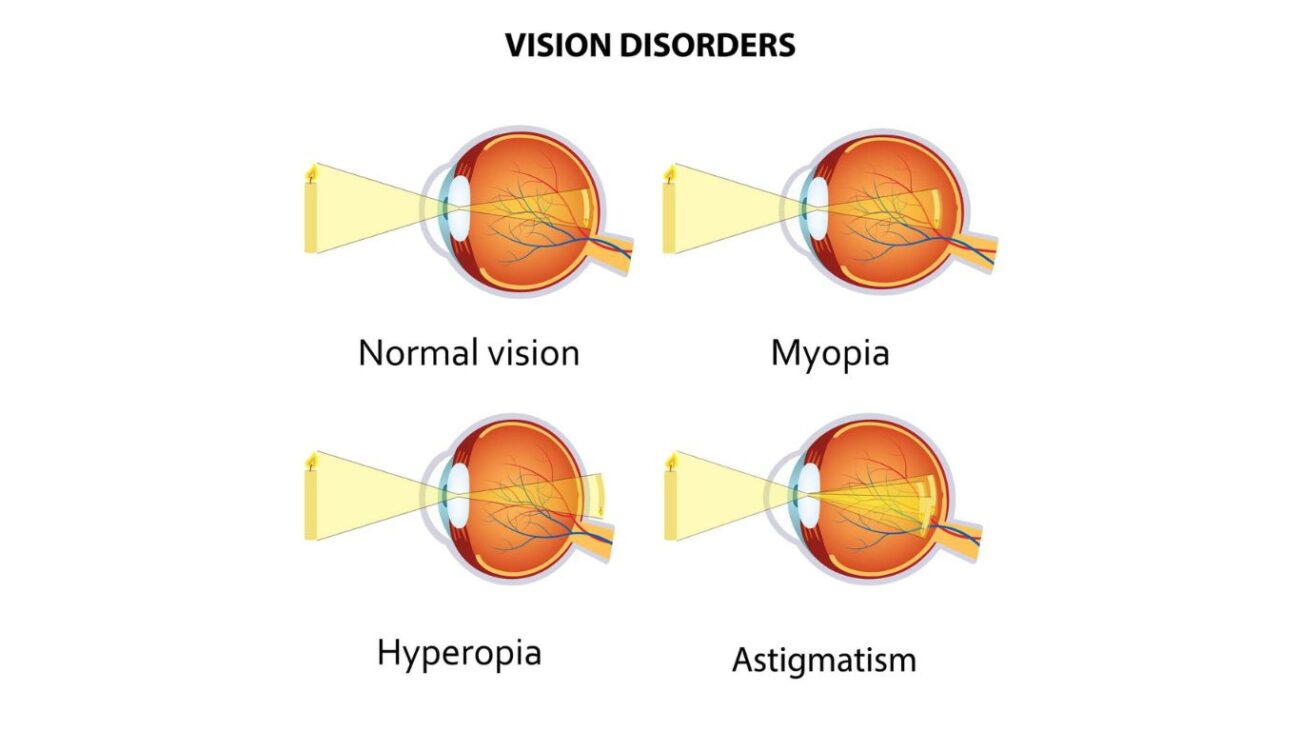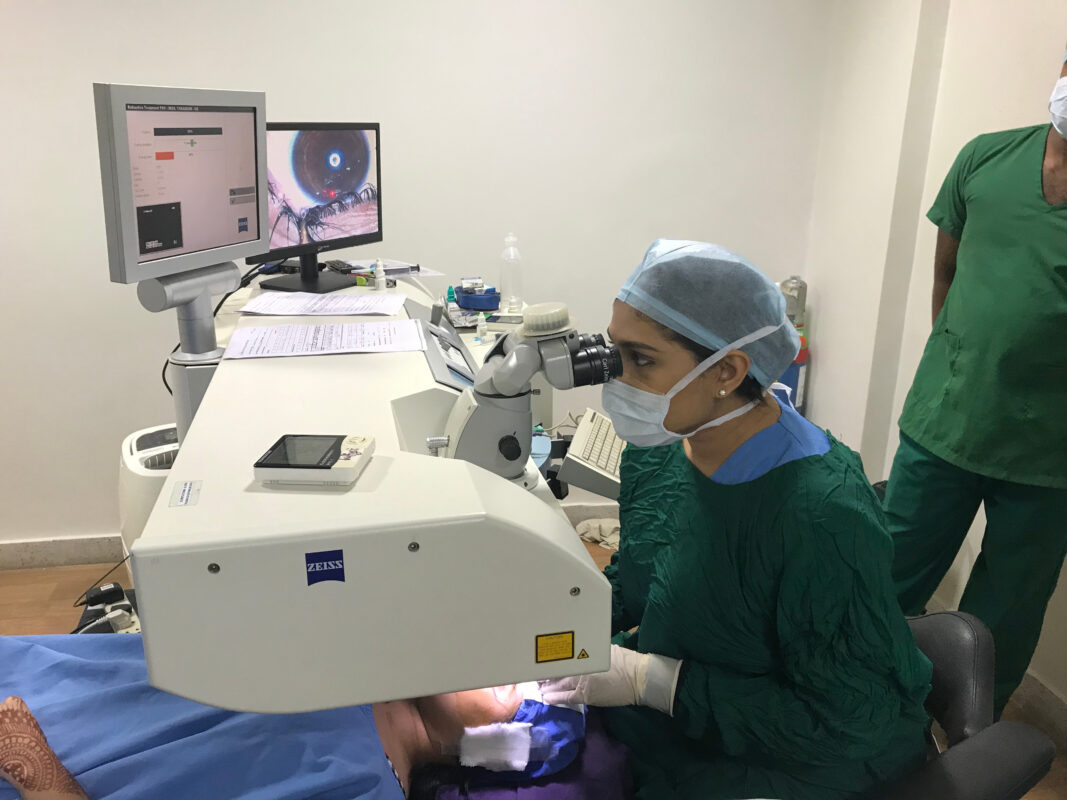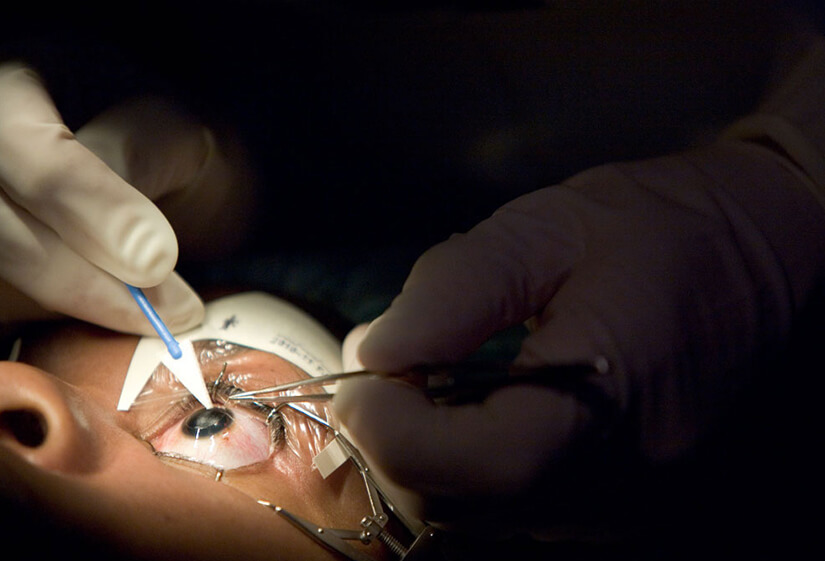Introduction:
LASIK (Laser-Assisted In Situ Keratomileusis) eye surgery has become a household name, synonymous with vision correction. But what exactly does LASIK do, and how does it work? This comprehensive guide dives deep into the world of LASIK, exploring its benefits, risks, procedures, and everything you need to know to determine if it’s the right choice for you.
Understanding Refractive Errors:
Before delving into LASIK, it’s essential to understand refractive errors. lasik eye surgery what does it do ? These occur when the shape of your eye prevents light from focusing correctly on the retina, the light-sensitive tissue at the back of your eye. This leads to blurry vision. The most common refractive errors are:
- Myopia (Nearsightedness): You can see near objects clearly, but distant objects appear blurry. The eye’s shape causes light to focus in front of the retina.

- Hyperopia (Farsightedness): Distant objects may be clearer than near objects. The eye’s shape causes light to focus behind the retina.
- Astigmatism: This occurs when the cornea (the clear front surface of the eye) or lens is irregularly shaped, causing blurry or distorted vision at all distances.
How LASIK Corrects Vision:
LASIK aims to correct these refractive errors by reshaping the cornea, allowing light to focus properly on the retina. It’s a two-step procedure:
- Creating the Corneal Flap: A microkeratome (a specialized blade) or a femtosecond laser creates a thin, circular flap on the cornea’s surface. This flap is gently lifted.
- Reshaping the Cornea: An excimer laser, guided by a computer and programmed with your specific prescription, precisely reshapes the underlying corneal tissue. This reshaping corrects the refractive error.
- The surgeon carefully repositions the corneal flap back into its original place.
What LASIK Treats and lasik eye surgery what does it do?:
LASIK primarily treats myopia, hyperopia, and astigmatism. It can often reduce or eliminate the need for glasses or contact lenses for these refractive errors. However, LASIK may not be suitable for everyone, and certain conditions may disqualify you as a candidate.

Who is a Good Candidate for LASIK?
Not everyone is a suitable candidate for LASIK. Ideal candidates generally:
- Are at least 18 years old (some surgeons prefer 21).
- Have a stable vision prescription for at least one year.
- Have healthy eyes, free from conditions like cataracts, glaucoma, or dry eye syndrome (though some dry eye can be managed).
- Have a sufficiently thick cornea.
- Are within a certain range of refractive error.
- Are not pregnant or breastfeeding.
The LASIK Procedure: What to Expect:
The LASIK procedure is typically performed on an outpatient basis, meaning you can go home the same day. Here’s a general overview of what to expect:
- Pre-operative Evaluation: A comprehensive eye exam is conducted to assess your eye health and determine your candidacy for LASIK. This includes measurements of your cornea, refractive error, and overall eye health.
- Day of Surgery: You’ll arrive at the clinic and be given numbing eye drops. The surgeon will explain the procedure and answer any questions you may have.
- During the Procedure: The procedure itself is relatively quick, usually taking about 15-20 minutes per eye. You may feel some pressure but typically no pain.
- Post-operative Care: After the procedure, you’ll be given protective eye shields and instructions for post-operative care, including eye drops to prevent infection and inflammation.
Benefits of LASIK Eye Surgery:
- Improved Vision: Many patients achieve 20/20 vision or better after LASIK.
- Reduced or Eliminated Need for Glasses or Contacts: This is a major benefit for many people, offering greater freedom and convenience.
- Quick Procedure and Recovery: The LASIK procedure is relatively quick, and most patients experience rapid visual recovery.
- Long-Term Results: The vision correction achieved with LASIK is typically long-lasting, although some people may experience some regression over time.
Risks and Potential Complications of LASIK:
While LASIK is generally considered safe, like any surgical procedure, it carries some risks and potential complications:
- Dry Eye: This is a common side effect, and most cases are temporary.
- Glare and Halos: Some patients may experience glare or halos around lights, especially at night.
- Undercorrection or Overcorrection: This may require further treatment or corrective lenses.
- Flap Complications: Issues with the corneal flap, although rare, can occur.
- Infection: The risk of infection is low but exists.
- Regression: Some degree of vision regression may occur over time.
Alternatives to LASIK:
LASIK is not the only vision correction option available. Alternatives include:
- PRK (Photorefractive Keratectomy): Similar to LASIK but does not involve creating a corneal flap. May be a better option for people with thinner corneas.
- LASEK (Laser-Assisted Subepithelial Keratomileusis): Another flapless procedure similar to PRK.
- SMILE (Small Incision Lenticule Extraction): A minimally invasive procedure that removes a small lenticule of corneal tissue to correct vision.
- Implantable Contact Lenses (ICL): These lenses are surgically implanted in the eye and can correct higher degrees of refractive error.
Making the Decision: Is LASIK Right for You?
Deciding whether or not to undergo LASIK is a personal decision that should be made in consultation with a qualified ophthalmologist. Consider the benefits and risks carefully, and discuss your individual needs and expectations with your doctor.
Choosing a LASIK Surgeon:
Choosing a qualified and experienced LASIK surgeon is crucial for a successful outcome. Look for a board-certified ophthalmologist with extensive experience in refractive surgery. Ask about their qualifications, experience, technology used, and patient outcomes.
The Future of LASIK and Vision Correction:
Research and development in the field of refractive surgery are constantly evolving. New technologies and techniques are being developed to improve outcomes and expand the range of treatable conditions. The future of LASIK and vision correction looks promising, with the potential for even more precise and personalized treatments.
Author Details:
Dr. Sushruth Appajigowda holds a prominent position as a Cornea, Cataract, Glaucoma, and LASIK Surgeon in Bangalore. He serves as the chief Cataract and Refractive surgeon at Vijaya Nethralaya Eye Hospital, Nagarbhavi Bangalore. Renowned as one of the finest LASIK surgeons nationwide, he brings with him over 12+ years of experience across multiple LASIK platforms, including ZEISS, ALCON, SCHWIND, AMO, and Bausch and Lomb. Having successfully conducted over 5000 LASIK procedures, Dr. Sushruth holds the title of a Certified Refractive Surgeon and a Fellow of the All India Collegium Of Ophthalmology. Furthermore, he stands as a distinguished speaker at various National and International Forums, using his expertise to guide you in selecting the most suitable procedure based on your health requirements.
Dr sushruth Appaji gowda
http://vijayanethralaya.com/link-in-bio/
Conclusion:
LASIK eye surgery has revolutionized vision correction, offering many people the opportunity to live free from glasses or contacts. However, it’s essential to understand the procedure, its benefits and risks, and to determine if you are a suitable candidate. By consulting with a qualified ophthalmologist and making an informed decision, you can take control of your vision and improve your quality of life. Remember, your eyes are precious, and choosing the right care is paramount.
Frequently Asked Questions (FAQs) about LASIK Eye Surgery:
Q: Is LASIK painful?
A: Most patients report feeling some pressure during the procedure, but it is generally not painful. Numbing eye drops are used to minimize discomfort.
Q: How long does the LASIK procedure take?
A: The LASIK procedure itself is relatively quick, typically taking about 15-20 minutes per eye.
Q: How long is the recovery period after LASIK?
A: Most patients experience rapid visual recovery after LASIK. Many report improved vision within a few hours, and most achieve stable vision within a few days to weeks. However, full healing and stabilization can take several months.
Q: What is the success rate of LASIK?
A: LASIK has a high success rate, with many patients achieving 20/20 vision or better. However, individual results can vary.
Q: Can LASIK correct all vision problems?
A: LASIK primarily corrects myopia, hyperopia, and astigmatism. It may not be suitable for everyone, and certain conditions may disqualify you as a candidate. It also doesn’t treat presbyopia (age-related loss of near vision).
Q: What are the long-term effects of LASIK?
A: The vision correction achieved with LASIK is typically long-lasting, although some people may experience some regression over time. Regular eye exams are recommended to monitor your vision.
Q: Can my vision worsen after LASIK?
A: It’s possible for vision to change after LASIK due to natural aging or other factors. Some degree of regression is possible, and some patients may require enhancements or return to wearing glasses or contacts.
Q: Is LASIK safe?
A: LASIK is generally considered safe, but like any surgical procedure, it carries some risks and potential complications. Choosing a qualified and experienced surgeon can minimize these risks.
Q: What are the most common side effects of LASIK?
A: The most common side effect is dry eye, which is usually temporary. Other potential side effects include glare, halos, and discomfort.
Q: How much does LASIK cost?
A: The cost of LASIK varies depending on the surgeon, the technology used, and the specific needs of the patient. It’s best to consult with several clinics to get personalized quotes.
Q: Does insurance cover LASIK?
A: LASIK is typically considered an elective procedure, so it is usually not covered by insurance. However, some insurance plans may offer discounts or partial coverage.
Q: What are the alternatives to LASIK?
A: Alternatives to LASIK include PRK, LASEK, SMILE, and implantable contact lenses (ICL).
Q: How do I choose a LASIK surgeon?
A: Choose a board-certified ophthalmologist with extensive experience in refractive surgery. Ask about their qualifications, experience, technology used, and patient outcomes. Read online reviews and testimonials.
Q: What should I expect during the LASIK consultation?
A: During the consultation, the surgeon will conduct a comprehensive eye exam to assess your candidacy for LASIK. They will discuss your vision problems, medical history, and expectations. They should also explain the procedure, its risks and benefits, and answer your questions.
Q: When can I return to work after LASIK?
A: Most patients can return to work within a few days after LASIK, depending on the nature of their job.
Q: Can I wear makeup after LASIK?
A: It’s generally recommended to avoid wearing eye makeup for a few days to a week after LASIK to prevent infection. Your surgeon will provide specific instructions.
Q: Can I drive after LASIK?
A: You should not drive immediately after LASIK. Your vision may be blurry, and you may be sensitive to light. Your surgeon will advise you on when it’s safe to drive again.
Q: Can I swim after LASIK?
A: It’s generally recommended to avoid swimming for a few weeks after LASIK to prevent infection. Your surgeon will give you specific instructions.
Q: How long will the results of LASIK last?
A: The results of LASIK are typically long-lasting, but some people may experience some regression over time due to natural aging or other factors.
Q: Is LASIK right for me?
A: The best way to determine if LASIK is right for you is to consult with a qualified ophthalmologist. They will assess your individual needs and determine if you are a suitable candidate.












